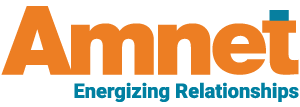In 2025, being digital-first isn’t enough. There’s a rising interest in interactive, versatile, and accessible learning experiences. Static PDFs and fragmented content formats fail to meet current needs. Publishers are adapting to deliver content in a format that aligns with publishing standards.
The Challenge: Outdated Formats, Limited Accessibility
Publishers using traditional content formats face a challenge, as these formats restrict personalization, limit accessibility, and lack interactivity. With content consumed through tablets, smartphones, and assistive devices, publishers require a format that is adaptable, scalable, and aligned to WCAG 2.2 and Section 508 accessibility regulations.
This is where digital publishing solutions need to evolve. Forward-looking publishers are embracing advanced content development services and eBook conversion service providers to future-proof their publishing ecosystems.
The Solution: EPUB3; Interactive, Inclusive, and Built for the Future
The digital educational publishing market size is forecast to increase by USD 26.19 billion at a CAGR of 22.9 percent between 2023 and 2028. As demand grows, so does the need for formats that match pace. EPUB3 has emerged as the gold standard for digital publishing, especially in educational publishing. Unlike legacy formats, EPUB3 is reflowable, responsive, and rich in multimedia support. It enables publishers to deliver content that is visually adaptive with interactive elements, alt-text, read-aloud support, and MathML (for math formulas).
EPUB3 allows publishers to stay ahead of instructional design trends and regulatory requirements. It is mobile friendly, screen reader compatible, and built for multi-device delivery. While EPUB3 is the front-facing format, XML is its backbone. Structured content, powered by XML, enables publishers to create once and deploy everywhere—EPUB3 for students, HTML5 for LMS, and PDF for print compliance. An effective XML-first workflow allows publishers to maintain consistency and quality across platforms.
Scientific publishing services and digital publishing services benefit from XML’s semantic accuracy and accessibility. These attributes make XML foundational to content development services that focus on long-term adaptability and accessibility.
How Amnet Addresses It: Future-Proof EPUB3 Conversion and Compliance
Amnet helps publishers seamlessly transition to EPUB3 by integrating XML-first workflows that power EPUB3 outputs at scale. Our expert teams ensure that content is WCAG 2.2 compliant and optimized for assistive technologies. They ensure metadata, media overlays, and interactive navigation are embedded for improved learning outcomes.
Amnet’s end-to-end publishing services are designed to support educational, academic, and trade publishers. Our support runs through every step of the EPUB3 transformation process, from source file handling to multi-format delivery. Our digital content development experts ensure that publishers receive outputs tailored for all devices and reading environments.
With deep expertise in accessible publishing, structure tagging, and standards compliance, Amnet supports K–12, academic, and trade publishers in creating rich EPUB3 content that meets federal mandates and learner expectations. We also incorporate AI-enabled automation for faster conversions, version control, and updates, ensuring compliance even as regulations evolve.
From MathML equations and alt-text tagging to fixed-layout EPUB3 and media-rich enhancements, Amnet delivers future-ready EPUB3 outputs that are aligned with institutional DEI mandates, Common Core, and NGSS (Next Generation Science Standards).
As digital-first becomes the norm, Amnet helps clients embrace EPUB3 not just as a format but as a strategic advantage in the competitive publishing landscape.
Source
- https://www.technavio.com/report/digital-educational-publishing-market-market-industry-analysis?



